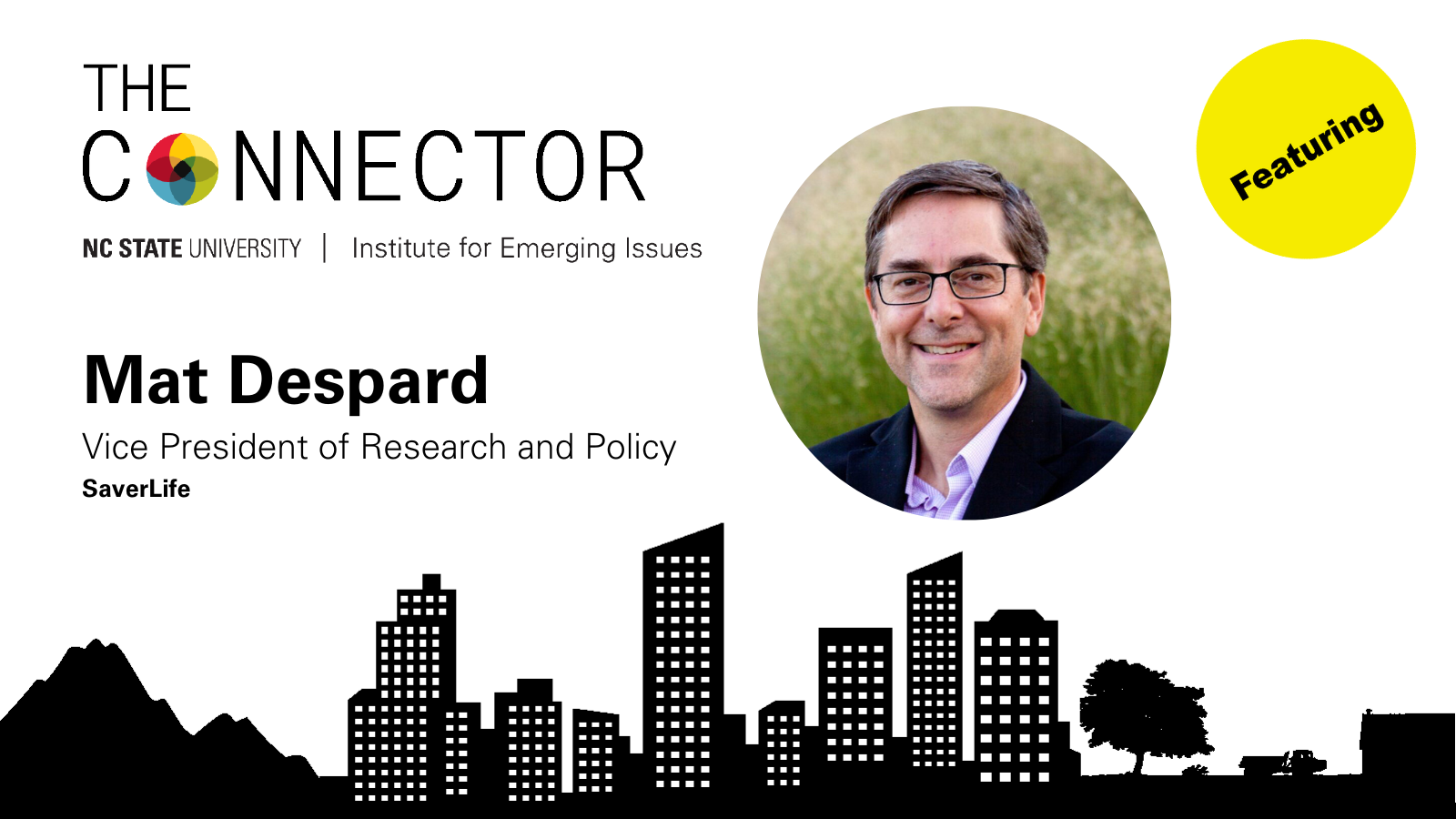Podcast
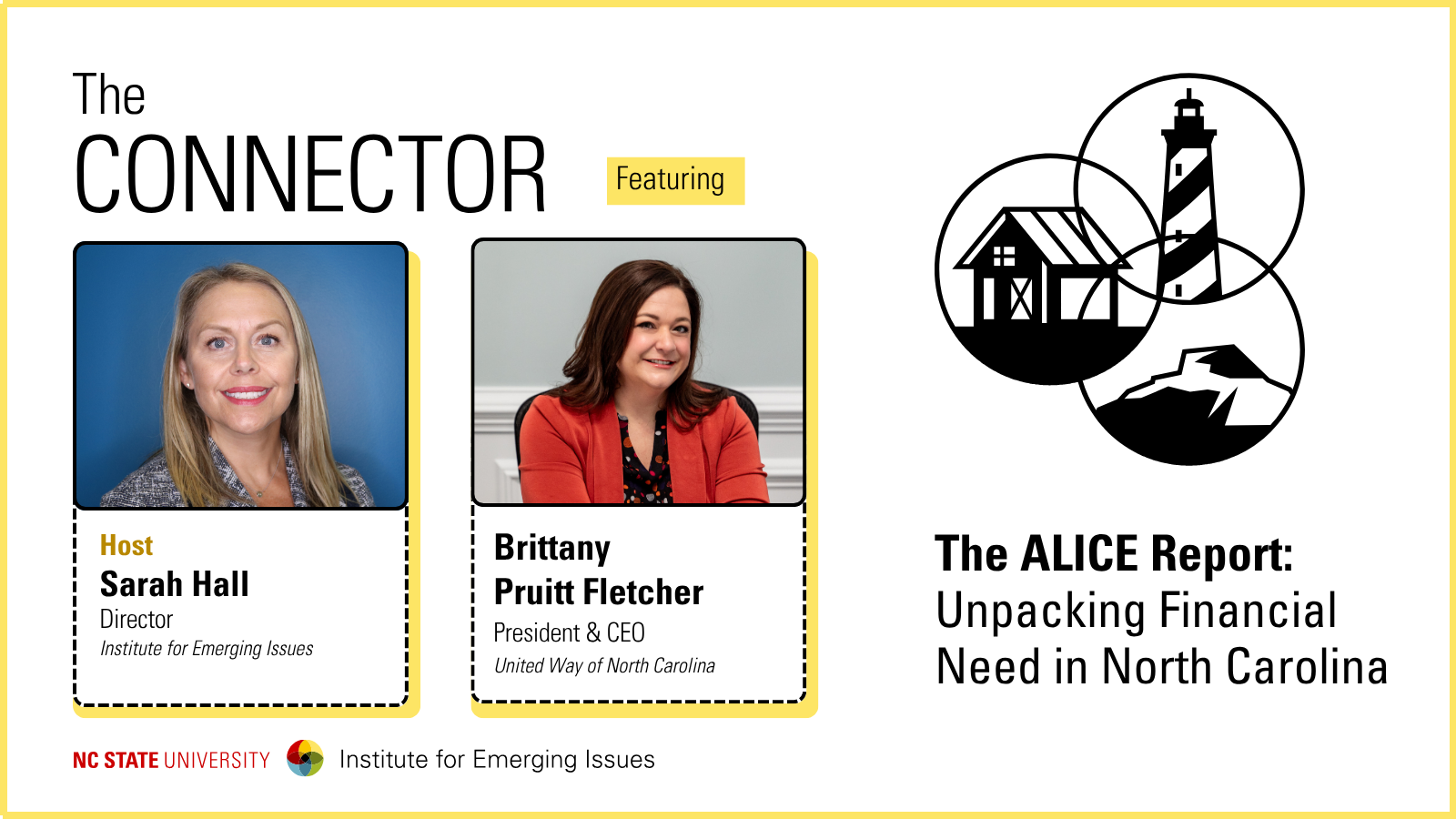
The ALICE Report: Unpacking Financial Need in North Carolina
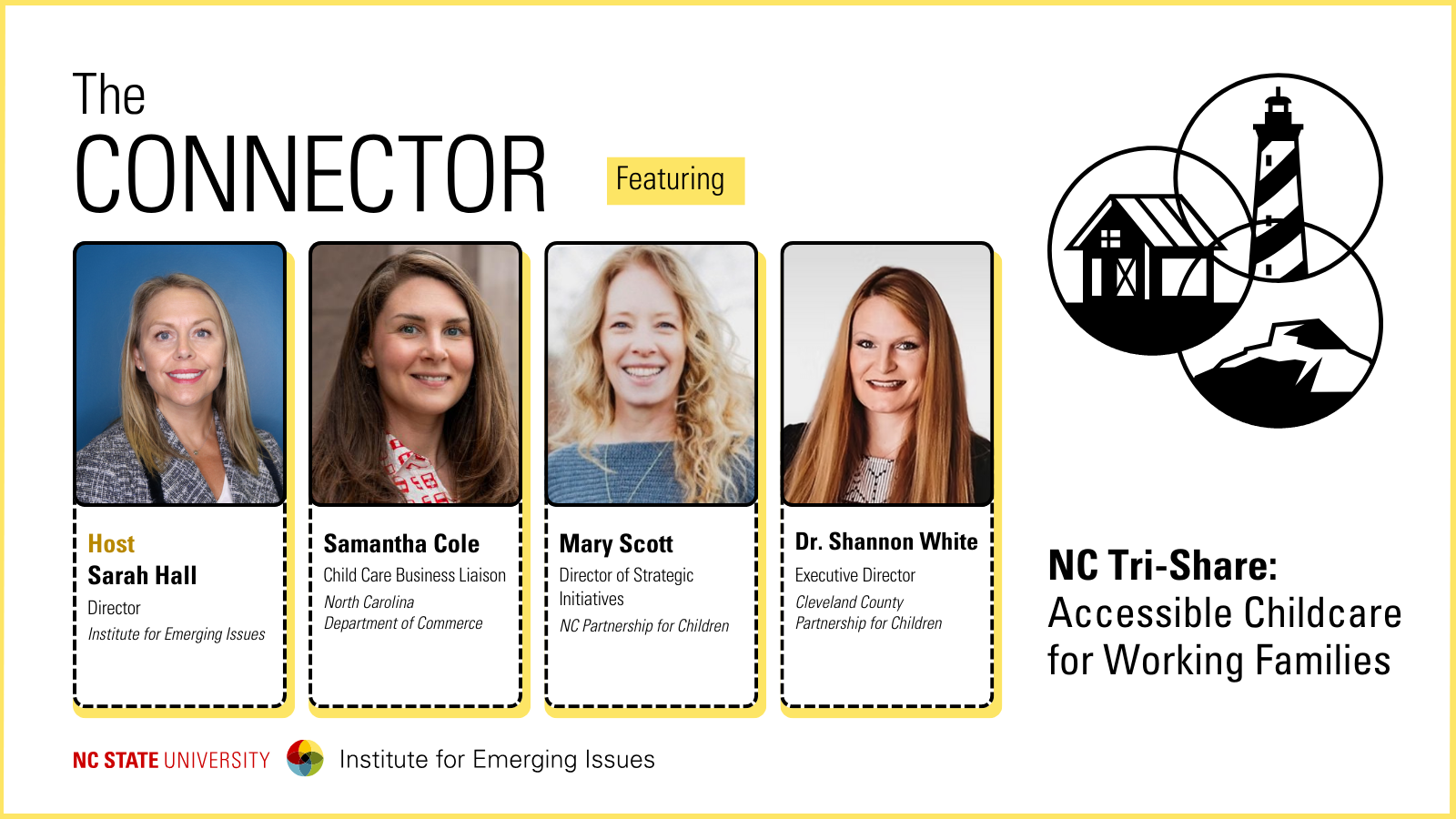
NC Tri-Share: Accessible Childcare for Working Families
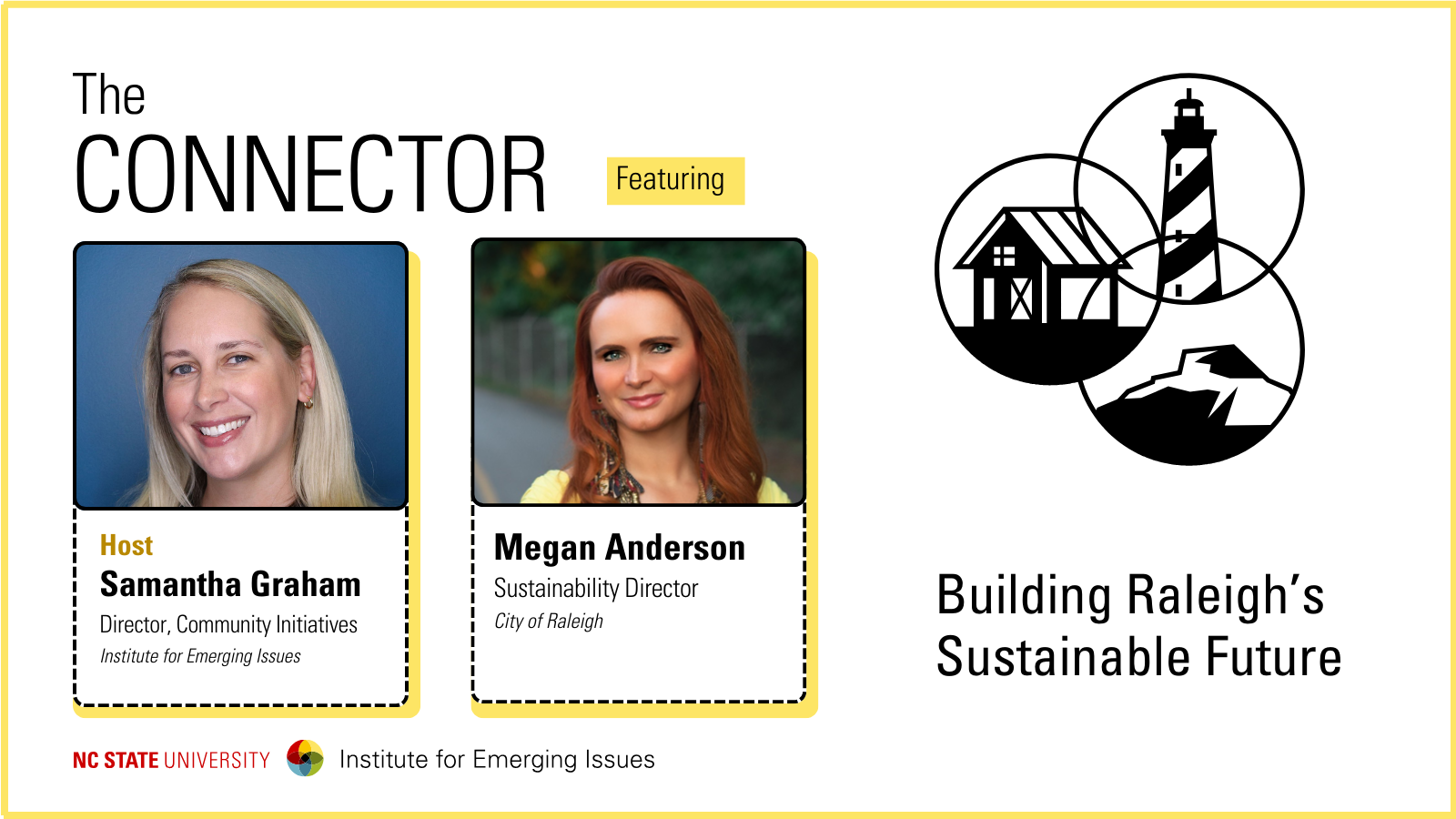
Building Raleigh’s Sustainable Future
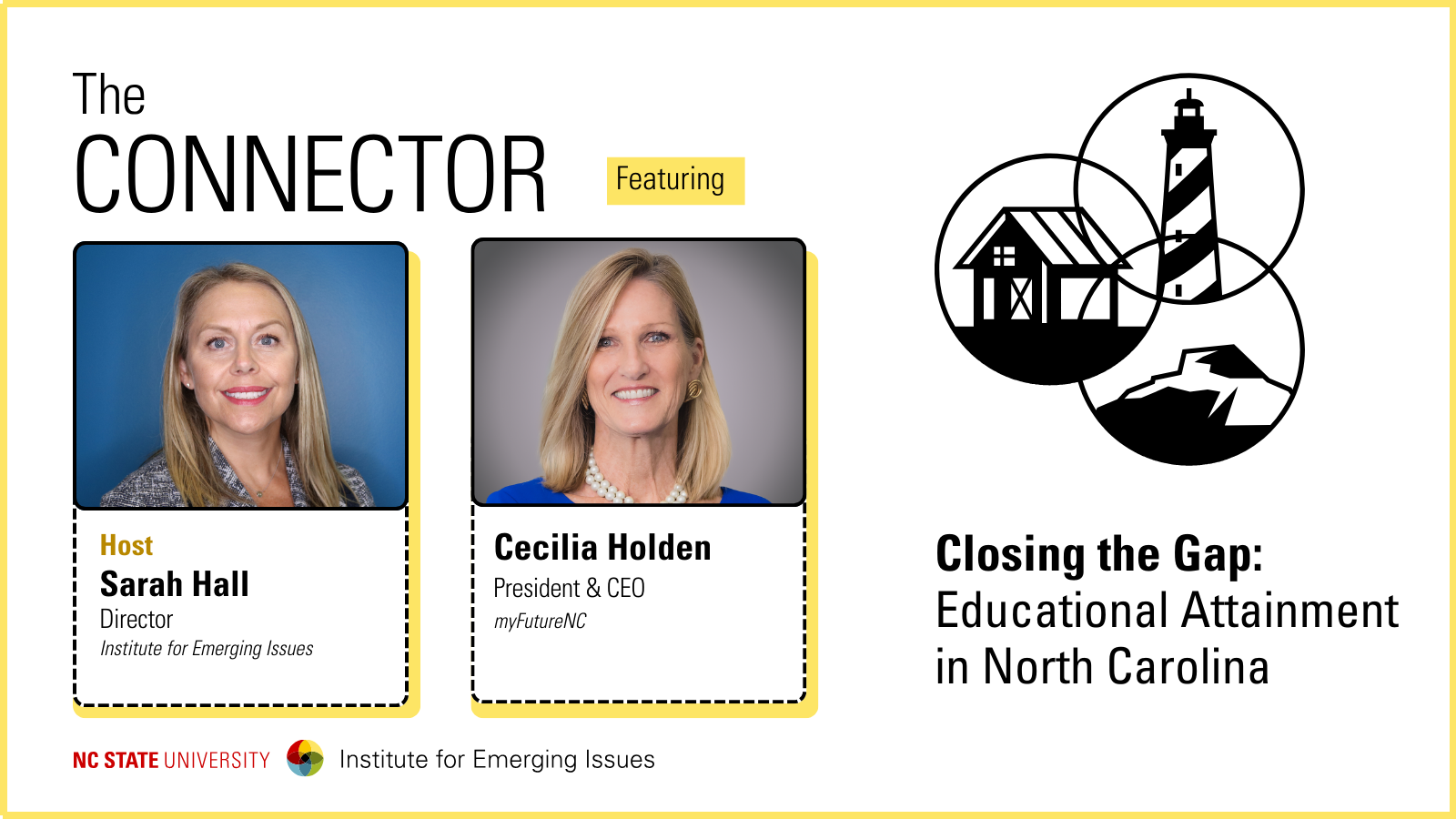
Closing the Gap: Educational Attainment in North Carolina
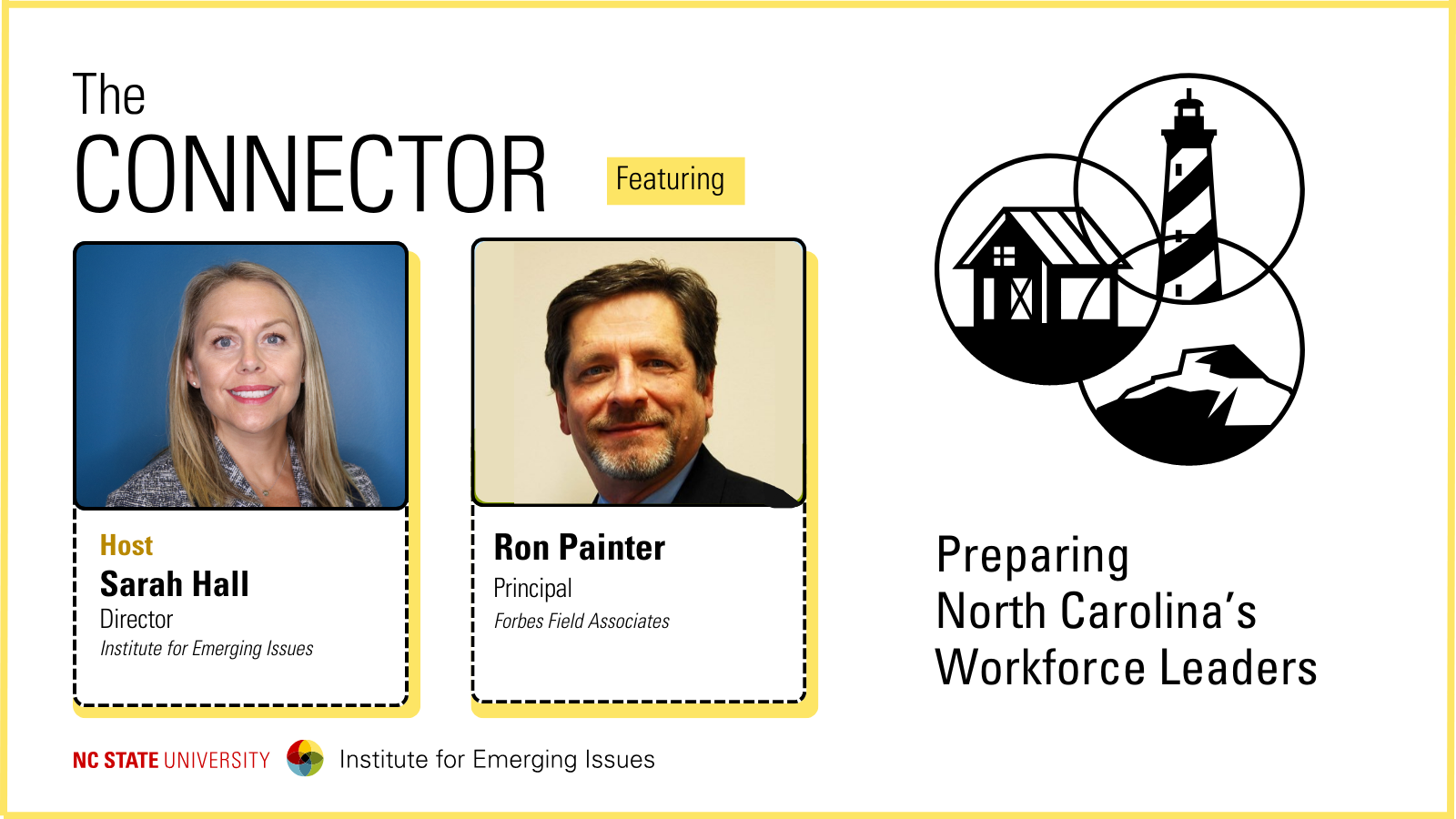
Preparing North Carolina’s Workforce Leaders
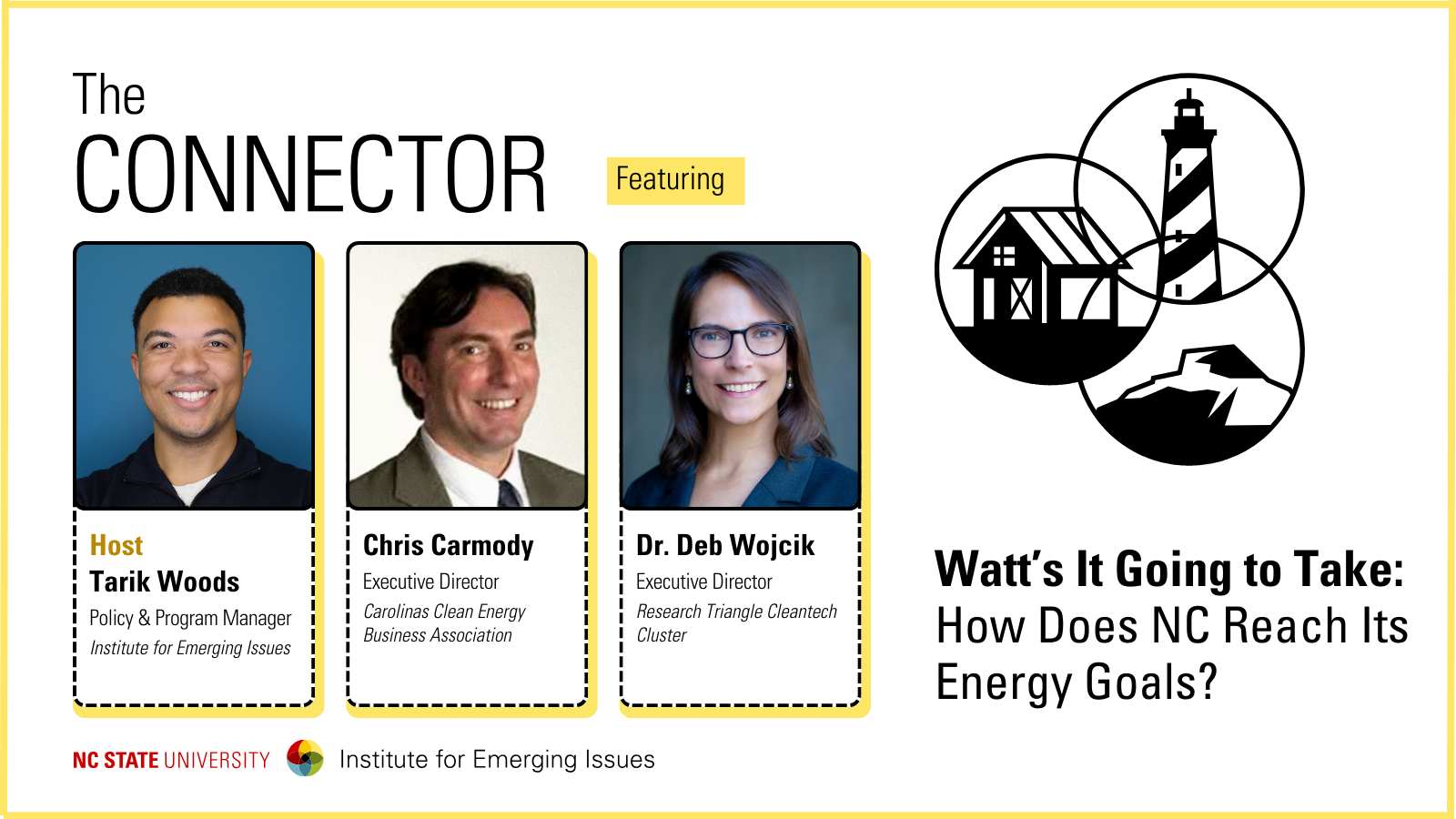
Watt’s It Going to Take: How Does NC Reach Its Energy Goals?
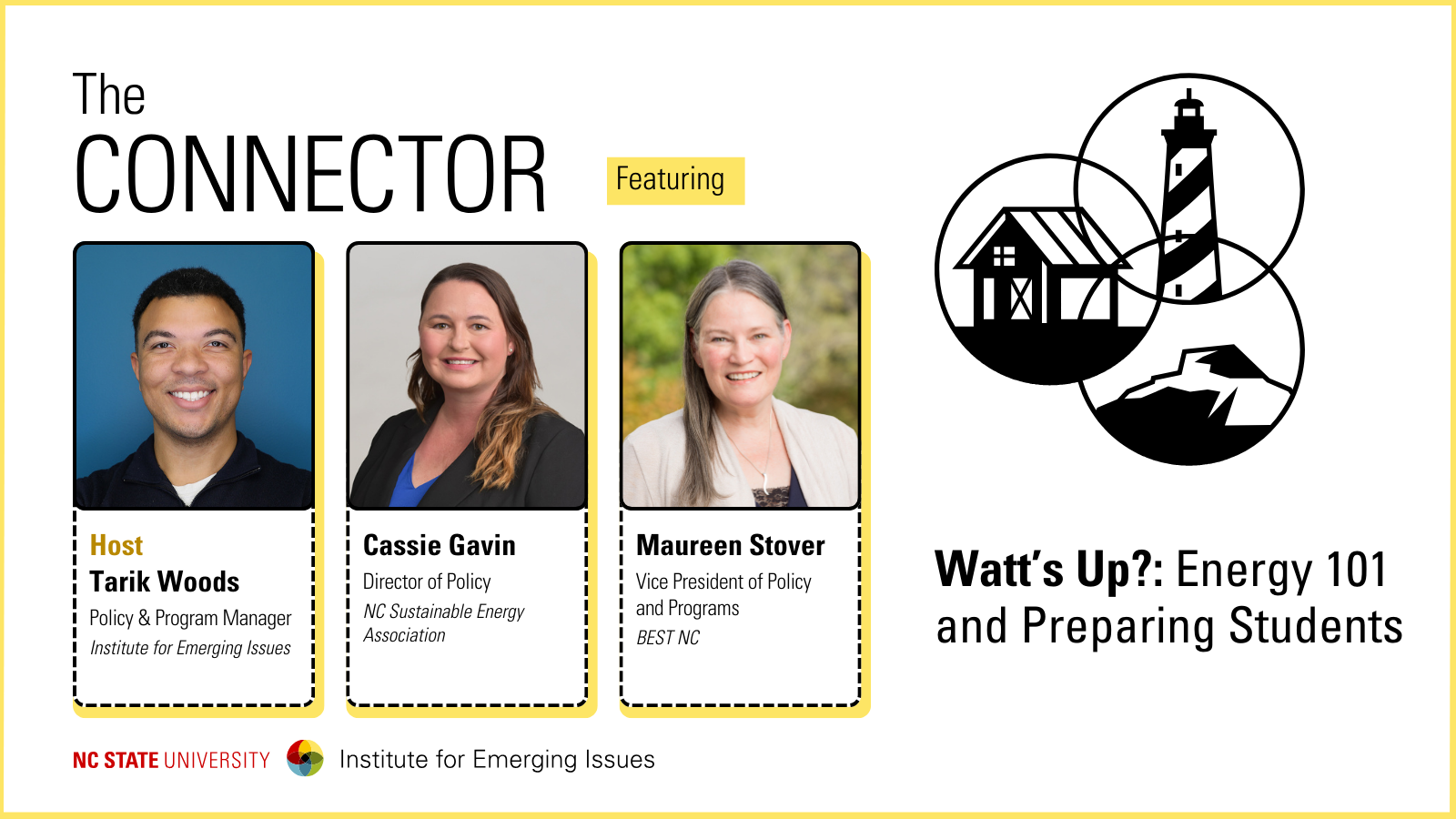
Watt’s Up?: Energy 101 and Preparing Students
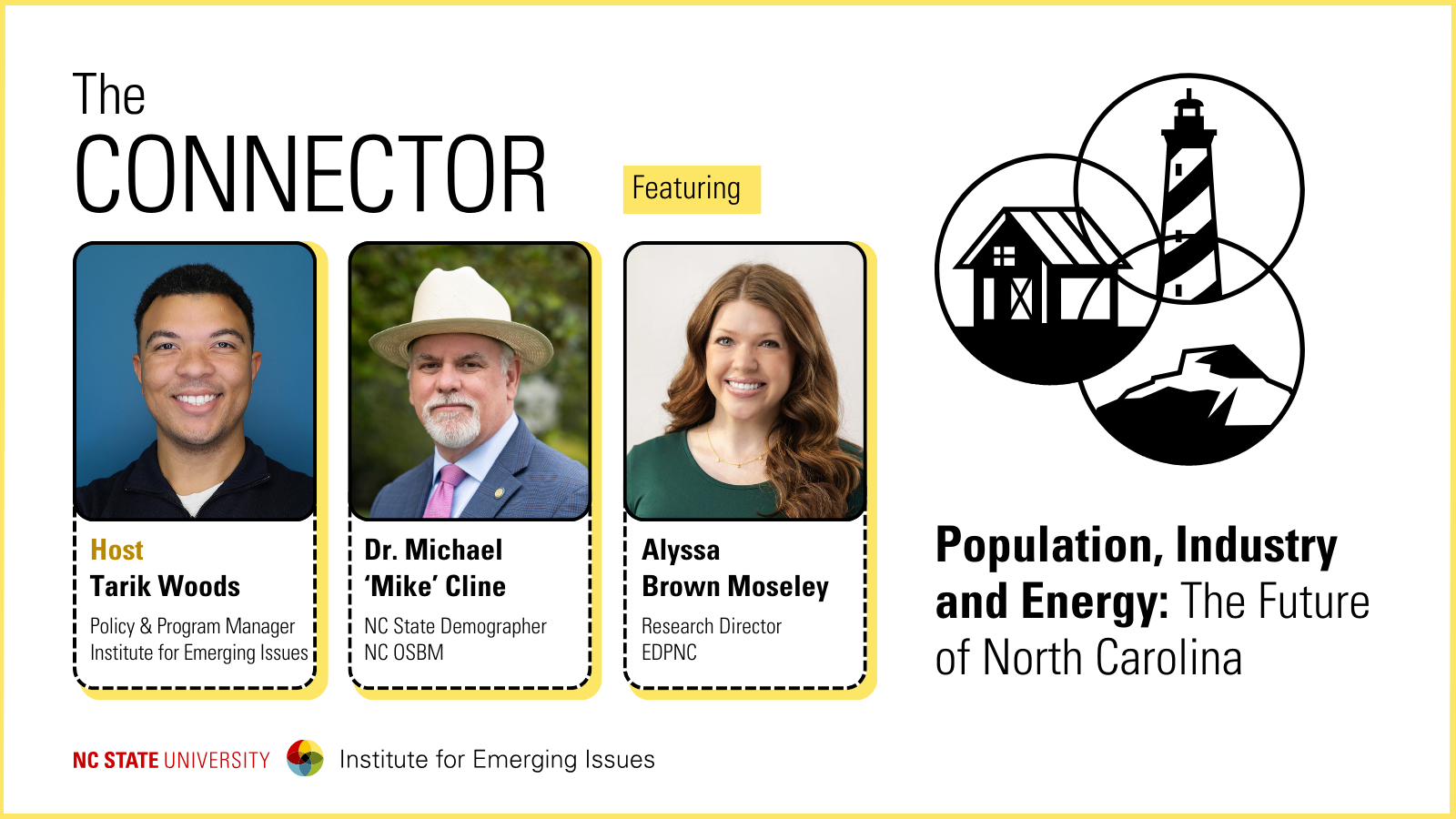
Population, Industry and Energy: The Future of North Carolina

From Unbanked to Banked
